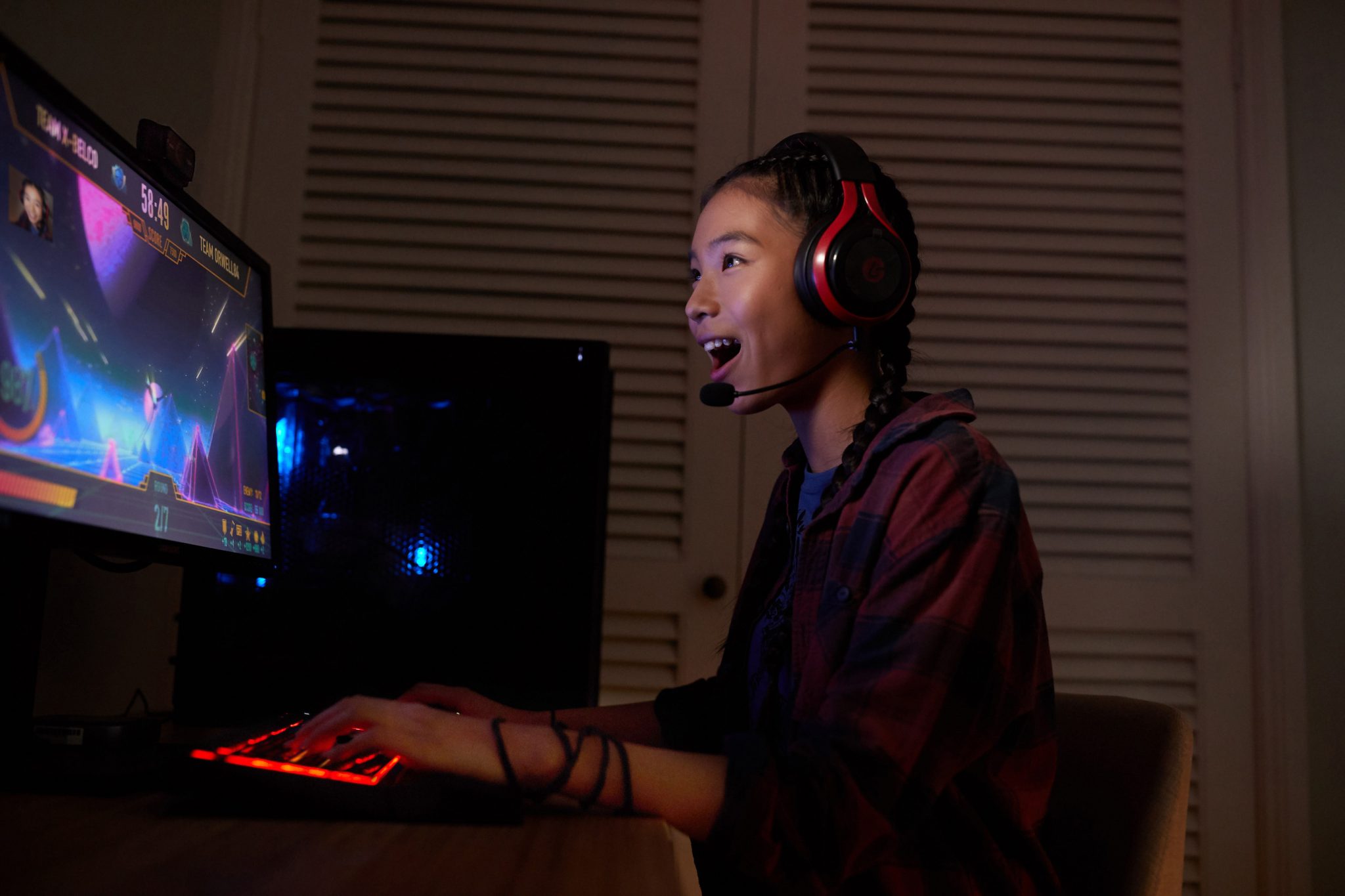Some days, I think gaming is a gift from the gods – a ‘time-out’ gift for tired, stressed parents. But other days, I consider it a curse! Extracting kids from gaming consoles can be quite a chore.
But new research from the Royal Melbourne Institute of Technology (RMIT) might just change the way we think about gaming. Professor Albert Posso from RMIT believes that video games could in fact help students perform better at school, particularly in the areas of maths and science.
The research, entitled Internet Usage and Educational Outcomes Among 15-year-old Australian Students, investigated the results of a study of 12,000 Aussie students and the results were compelling. It appears students who play online games almost every day score 15 points above the average in maths and 17 points above the average in science! Extraordinary.
Professor Posso believes video games help students to apply and sharpen skills learned at school:
“When you play online games, you’re solving puzzles to move to the next level and that involves some of the general knowledge and skills in maths, reading and science that you’ve been taught at school,” he commented.
Professor Posso is such a big fan that he believes teachers should incorporate popular video games into teaching – so long as they are non-violent! Now, that’s an endorsement.
However, the study didn’t produce the same level of commendation for Facebook. In fact, it showed that teenagers who use Facebook or chat every day scored 20 points worse in maths than students who never used social media! A truly alarming statistic that Professor Posso attributes to several causes:
“Students who are regularly on social media are, of course, losing time that could be spent on study – but it may also indicate that they are struggling with maths, reading and science and are going online to socialise instead,” he explained.
He has recommended that teachers try to blend the use of Facebook into their classes as a way of helping ‘social media orientated’ teens engage.
So, what does this mean for us as parents?
Rethinking the way we ‘classify’ online activities might be a good starting point. I know many parents (including myself) do not associate gaming with educational benefits. My boys have quite limited opportunity to play video games – basically weekends only and with time restrictions. But perhaps we need to incorporate more opportunities for gaming into our weekly routines? – but with boundaries, of course! Perhaps 30 mins a day?
I think it is also important to work with your teens to incorporate some boundaries around social media usage. I strongly recommend avoiding a dictatorial approach. Instead, why not educate your teens about the detrimental academic consequences of social media usage. Yes, this might take some time but trying to teach teens some self-regulation is ideal.
And if they are finding this hard, why not suggest they download some apps specially designed to either prevent access and/or monitor the time they spend on social media platforms? Check out my favourite ‘management apps’ Stay Focused and Rescue Time.
Many parenting experts firmly believe flexibility is a key attribute for successful parenting. Changing things up and adjusting your long-standing routines might just be what your kids need. I have no doubt that your popularity may also dramatically increase when you insist they complete their 30 mins of online gaming! I’m looking forward to a particularly big Christmas gift this year!
‘Till next time
Alex xx













